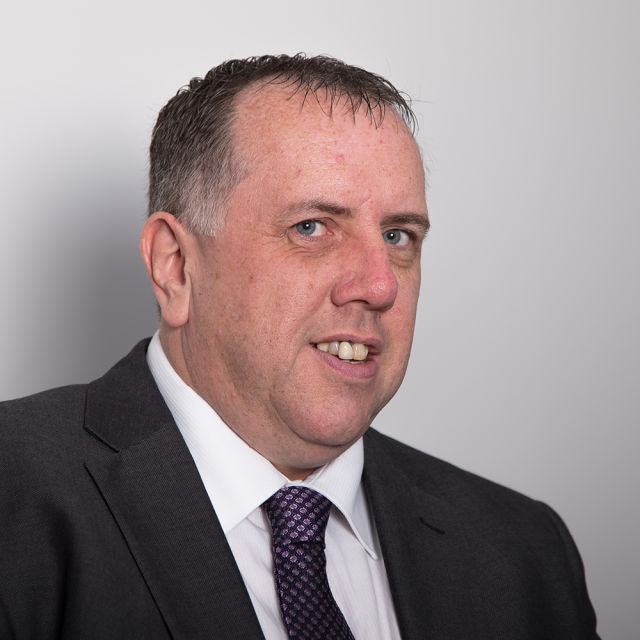Cool runnings

Karen Fletcher speaks to a company at the front line of changes in the air conditioning sector and learns how it is staying ahead of the game with an eye firmly on the future.
Pacair is in its sixteenth trading year, and over the years has witnessed many developments in the air conditioning sector. As a bespoke design and supply company in the industry, the business works with a number of manufacturers, including Mitsubishi Electric, LG and Toshiba.
Fair to say then, that its management team has a broad view of key drivers in the market. One of these should be the F Gas Directive, but Nigel Palmer, managing director of Pacair, says that perhaps we haven’t felt the full impact yet.
“I feel that the Directive should have affected what people are buying more than it has,” he explains. “We tell people that if they are not correctly F Gas certified then we won’t quote, never mind supply the product. Unfortunately a lot of wholesalers will sell to anybody over the counter, not necessarily checking on that as well as they should.”
Having delivered training on the regulations himself, Palmer feels that the market needs further education on this topic: “It’s a shame, because the F Gas regulations are here to support the market and to help the environment,” he adds.
That said, the changing refrigerant landscape has had a significant impact on the products introduced by manufacturers. This has led to some volatility for suppliers as well as customers. “Everyone jumped on R407c when R22 was banned. Unfortunately, that didn’t always work and there were warranty issues. R407C wasn’t a very structured gas. It was a two-year nightmare. But then R410A appeared and those problems disappeared.”
With R32, there are certainly fewer performance issues, but Palmer doesn’t feel it’s a complete solution. “We classify R32 as ‘mildly flammable’ so you can sell it, but it’s still flammable and needs additional leak detection. The UK has been quick to move to R32, but I see this as another stop-gap.”
The key issue, explains Palmer, is the extra capital expenditure associated with R32 equipment: “A large R32 VRF system leads to a massive leak detection requirement. Under EN 378 rules, in a hotel project for example, you’re just not going to be able to do it without leak detection everywhere.” This is an area that Pacair itself has invested in (partnering with leak detection specialist Bacharach).
However, Palmer is cautious about what the effect of extra capital expenditure will have on R32-based products. “It won’t fail or cause problems, but legislation will mean that you need to put in so many bolt-ons to make sure you can use it that it will become un-commercial.”
And this aspect of commercial viability is something that Pacair, like all businesses in the sector, has to take very seriously. Richard Branson recently blogged about air conditioning being ripe for ‘disruption’ because it lacks the innovation to make energy efficient products for the future. Palmer doesn’t disagree entirely but adds: “I think it’s important to have goals, but they have to be commercially viable. We have to live in the real world.”
He points to the science of cooling which has its limitations: “It’s difficult, isn’t it, because there are only so many elements on the periodic table and only six of those make refrigerant. So there is only so much that you can do and the refrigerant manufacturers know what that is and constantly strive to develop better ones.”
Looking to the future, Pacair has seen the large manufacturers investing in chiller technology. “In the next few years, what happens with refrigerants themselves will tell us where VRF will go; whether it has a lifespan or not. Every manufacturer has bought a chiller company. It’s a safeguard, and I don’t blame them.”
In spite of challenging market conditions, Pacair has continued to grow, based largely on repeat business from loyal customers and via word-of-mouth. However, new technology is also offering a whole new opportunity for the business.
“Heat pumps for heating is a huge growth area for us,” says Palmer. “The London Plan suggests that electric heating is the way forward, and we’ve got heat pumps that do exactly that, so our next ten-year investment is going to be in that area. It’s quite a surprising change for a company that sells ‘cooling’ but the market is massive.”
Bringing in new skills is a key part of this plan. Like most businesses in building services, finding the staff is difficult. Palmer recognises the issue: “Bringing people into our industry is difficult because it’s not sexy. It’s not the new Aston or Ferrari, it’s another box with a fan on top.”
Nevertheless, Palmer and his team remain infectiously buoyant about the future for the industry. In a shifting market, there is no doubt that staying ahead of the trends is vital, as is spotting opportunities and harnessing existing skills to make the most of them. As Pacair celebrates sixteen years in business, there’s no doubt the company has many more to come.







